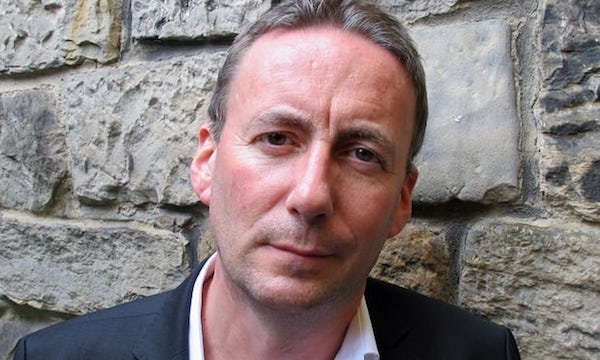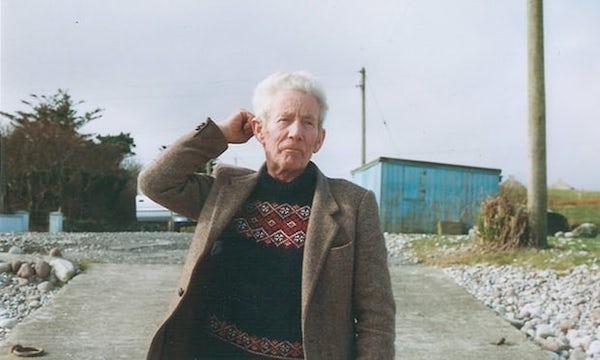We’ve lost our way with death, says Kevin Toolis – but the Irish wake, where the living, the bereaved and the dead remain bound together, shows us the way things could be done

By Kevin Toolis
[I]n the narrow room the old man lay close to death.
Two days before, he had ceased to speak, lapsed into unconsciousness, and the final vigil had begun. The ravages of cancer had eaten into the flesh leaving only a skeletal husk. The heart beat on and the lungs drew breath but it was impossible to tell if he remained aware.
In the bare whitewashed room, no bigger than a prison cell, 10 watchers – the mná caointe – the wailing women, were calling out, keening, sharing the last moments of the life, and the death, of this man. My father. Sonny.
“Holy Mary, mother of God, pray for us now, and at the hour of our death.”
In the tight, enclosed space, the sound of this chorus of voices boomed off the walls, the ceiling, louder and louder, reverberating, verse after verse, on and on, cradling Sonny into death.
This death so open, so different from the denial of the Anglo-Saxon world would, too, be Sonny’s last parental lesson.
How to die.
If you have never been to an Irish wake, or only seen the movie version, you probably think a wake is just another Irish piss up, a few pints around the corpse and an open coffin. But you would be wrong.

In the Anglo-Saxon world, death is a whisper. Instinctively we feel we should dim the lights, lower our voices and draw the screens. We want to give the dead, dying and the grieving room. We say we do so because we don’t want to intrude. And that is true but not for these reasons.
We don’t want to intrude because we don’t want to look at the mirror of our own death. We have lost our way with death.
On the Irish island where my family have lived in the same village for the last 200 years, and in much of the rest of Ireland, death still speaks with a louder voice. Along with the weather reports of incoming Atlantic storms, the local Mayo country and western radio station runs a thrice daily deaths announcement enumerating the deaths and the funeral arrangements of the 10 or so daily freshly departed. There is even a phone line, 95c a minute, just so you can check up on those corpses you might have missed.
There should be nothing strange about this. In the absence of war and catastrophe, humans across the planet die at an annual rate of 1%; 200,000 dead people a day, 73m dead people a year. An even spread. It’s happening all around you even as you read this article; the block opposite, the neighbouring street and your local hospital.
If the local radio in London or New York did the same as that Mayo station, the announcer would have to read out the names of 230 dead strangers, three times a day, just to keep up.
Of course, if you live in a city such as London, where 85,000 people die each year, you would never know of these things. Such a very public naming of the dead, an annunciation of our universal mortality, would be an act of revelation in the Anglo-Saxon world. And likely deemed an outrage against “public decency” – which would almost certainly lead to advertising boycotts and protests.
More shocking still then would be the discovery of another country where the dying, like Sonny, the living, the bereaved and the dead still openly share the world and remain bound together in the Irish wake.
And death, in its very ordinariness, is no stranger.
My father, Sonny Toolis, was too a very ordinary man. He was never rich or powerful or important. He never held public office and his name never appeared in the newspapers. The world never paid him much attention and Sonny also knew the world never would. He was born poor in a village on an island, devoid of electricity, mains water and tarred roads, in much the same way the poor have been born in such places for most of human history.
Sonny never got the chance to get much of an education and worked most of his life as a foreman on building sites earning the money to pay for the university education of his seven children.
Sonny was good with his hands though. Useful to have around if things went wrong with the electric, the drains, or you needed the furniture moved. He had his limitations; he did not like strange peppery foods, he wasn’t very comfortable wearing suits, and he was terrible at giving speeches at weddings.
He did have a great singing voice, played the bagpipes and the accordion, and taught his children to sing by what he called the air – by listening along. In the 1960s, he bought a 35mm German camera, took pictures, and ran the prints off in his own darkroom. He even shot film on Super 8. But it was never more than a hobby. Like a lot of us, Sonny had some talents he would never fully realise in life.
But Sonny really did have one advantage over most of us. He knew how to die. And he knew how to do that because his island mothers and fathers, and all the generations before, had shared their deaths in the Irish wake and showed him how to die too.
His dying, his wake, his willing sharing of his own death, would too be his last parental lesson to his children and his community. A gift.
The wake is among the oldest rites of humanity first cited in the great Homeric war poem the Iliad and commonly practised across Europe until the last 200 years. The final verses of the Iliad, the display of the Trojan prince Hector’s corpse, the wailing women, the feasting and the funeral games, are devoted to his wake. And such rituals would be easily recognisable to any wake-goer on the island today.
For our ancestors, a wake, with its weight of obligations between the living and the bodies of the dead, and the dead and living, was a pathway to restore natural order to the world, heal our mortal wound, and communally overcome the death of any one individual. An act, in our current, thin psychological jargon, of closure.
Through urbanisation, industrialisation and the medicalisation of death, the wake died away in most of the western world and death itself came to be silenced by what might be called the Western Death Machine. But out in the west, among the Celts, this ancient form of death sharing lives on.
When he was 70, my father was diagnosed with pancreatic cancer – still among the most fatal cancers among western men. Sonny never flinched. He did not want to die but when he knew he had no choice, he never wasted the time he had left. He wasn’t angry or embittered but something wiser – he accepted his death. He got on with his dying the same way as he had got on living, day by day, pressing forward, husbanding his energy.
Sonny’s time had come but neither he nor his community denied his impending death. Unlike the shunning of the Anglo-Saxon world, his house filled with visitors who came to see him because he was dying.
Dying is an exhausting, self-centring act. Sonny, always a powerful physically imposing man, rapidly shed powers like a snake shedding skin. His world shrank to two rooms and Sonny knew he would never see the end of that fateful summer.
Sonny’s fatherhood was ending and my own beginning. Our last words together on his deathbed were very ordinary, bland. “I’ll let you go, son,” he said as I left to return to the city. When I returned, he had lapsed into a coma and could no longer speak.
But our parting was fitting. There was no more mystery to share. No revelation to be uncovered. Our identities as father and son had already been written out in the deeds of our life together; Sonny changing my nappy, not losing his temper in my teenage contrariness, encouraging me in my education and the summers we shared on building sites when I worked alongside him while still a student. And in all the countless ways he showed me in his craft how to be a man and father myself.
Sonny died just before dawn on the longest day of the year at home in the village of ancestors. No one called for help, or the “authorities”. He was already home with us. His body was washed and prepared for his coffin by his daughter and sister-in-law. He was laid out in his own front sitting room in an open coffin as his grandchildren, three, five and nine, played at the coffin’s feet.
His community, his relatives, some strangers even, came in great numbers to pray at his side, feast, talk, gossip about sheep prices or the stock market, and openly mark his death in countless handshakes and “Sorry for your trouble” utterances.
We waked together through the night with Sonny’s corpse to guard the passage out for his departing soul and man the Gate of Chaos against Hades’ invading horde lest the supernatural world sought to invade the living world. Just as the Trojans too before us had watched over Hector’s corpse. A perpetual quorum; dying in each other’s lives and living on in each other’s deaths at every wake ever since.
It was blessing of a kind, an act of grace. We give ourselves, our mortal presence, in such death sharings, or we give nothing at all; all the rest of our powers, wealth, position, status, are useless.
To be truly human is to bear the burden of our own mortality and to strive, in grace, to help others carry theirs; sometimes lightly, sometimes courageously. In communally accepting death into our lives through the Irish wake we are all able to relearn the first and oldest lessons of humanity. How to be brave in irreversible sorrow. How to reach out to the dying, the dead and the bereaved. How to go on living no matter how great the rupture or loss. How to face your own.
And how, like Sonny, to teach your children to face their death too.
Complete Article HERE!
